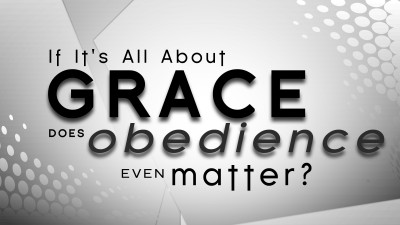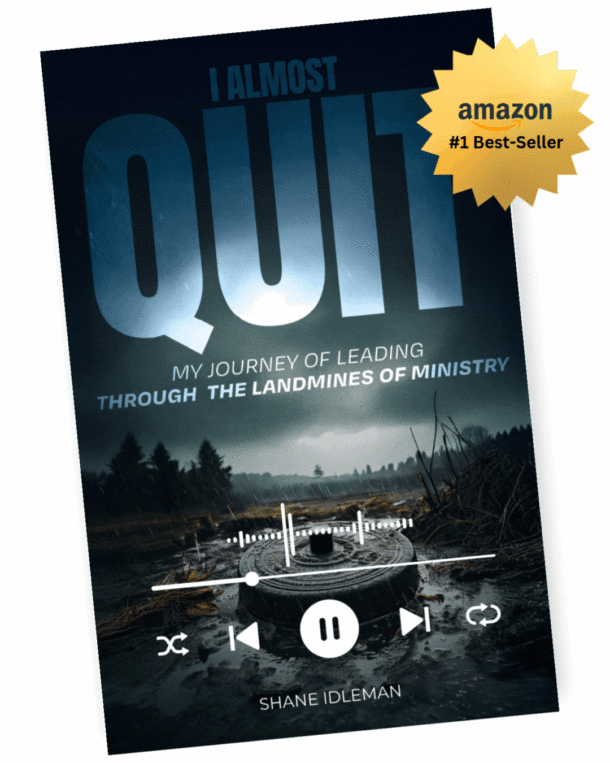GotQuestions.org defines hyper grace as “a new wave of teaching that emphasizes the grace of God to the exclusion of other vital teachings such as repentance and confession of sin. Hyper-grace teachers maintain that all sin, past, present, and future, has already been forgiven, so there is no need for a believer to ever confess it…The conclusion of hyper-grace teaching is that we are not bound by Jesus’ teaching, even as we are not under the Law; that believers are not responsible for their sin…”
Is this true?
Of all the attributes of God described in the Bible, holiness is seen most often. Men fell down in the holy presence of God. Leaders, priests, and kings all trembled at the sheer magnitude of His holiness. The angels cry, “Holy, Holy, Holy is our God.”
Holiness (through obedience) is the key to truly understanding God. This is why sin is serious. It separates us from God; it stands in direct opposition to Him. It corrupts our character and our testimony; it prevents holiness and quenches and grieves the Spirit within.
J.C. Ryle (1816-1900) in his book on holiness said that we must stand guard as a soldier on enemy ground. The problem is that many love the world and have a hard time separating. They believe in heaven but they don’t truly long for it. They “say” that they fear God but they don’t live like it. They indulge temptation rather than fight it. They enjoy sin rather than confront it. And they compromise rather than conquer. The lukewarm church disdains the heat of conviction. Holiness, to them, is outdated, old-fashioned (too conservative).
Are you willing to do what it takes to truly know God? Seeking to identify the middle ground between our responsibility (obedience) and God’s role in sanctification (holiness) can be challenging, but it doesn’t need to be. The Bible is filled with passages about obedience. This is why I do not embrace hyper grace, but I cherish biblical grace.
For example, 1 Peter 1:14 says, “As obedient children, not conforming yourselves to the former lusts, as in your ignorance.” 1 John 3:3 adds that “all who have this hope in Him purify themselves, just as He is pure.” And Romans 6:19 tells us to present our “bodies as slaves to righteousness.” Peter asks, “What sort of people ought you to be in holiness and godliness?” (2 Peter 3:11).
It’s clear from Scripture that grace produces sanctification (holiness). Holiness is a by-product of our submission to the work of the Spirit. Because of God’s grace I want to obey Him. Sadly, many don’t seek this surrendered life. They want the narrow road to be broad and the cross to be light. But holiness has a cost.
J.C. Ryle noted that “holiness will cost a man his sins. He must be willing to give up every habit and practice which is wrong in God’s sight…There must be no separate truce with any special sin which he loves.” Ryle continues, “Our sins are often as dear to us as our children: we love them, hug them, cleave to them, and delight in them. To part with them is as hard as cutting off a right hand, or plucking out a right eye. But it must be done. The parting must come.”
Holiness comes with a price…there is a cost—death to self and crucifixion to the world. To be filled mightily with the Spirit, we must first be emptied of self. Pride and arrogance hinder holiness. We are to overcome sin, not surrender to it.
A vast majority of Christian are turning a deaf ear to holiness saying, “We live under grace now.” Conviction is replaced with complacency. Their thought is, “I’m just not convicted about that like you are.” Often, the reason is because they are not truly seeking God.
Again, lukewarm living disdains the heat of conviction. It “loves the world” more than the things of God. A call to holiness challenges our lifestyle (mine included); it forces us to confront idols and remove destructive habits.
Holiness will cost the opinions of men. We will be ridiculed, mocked, slandered, persecuted, and even hated when we take a stand for holiness. Nevertheless, we desperately need holiness.
We should not apologize for following God’s Word. We are in the midst of a spiritual battle. We will be criticized for following Christ, mocked for believing in truth, and challenged for promoting holiness. We are called to deny ourselves, pick up our cross, and follow Him. The day of the passive, lukewarm church must come to an end if we truly desire for families to be restored and for lives to be rebuilt.
Be clear here:
1] Holiness does not mean that we never sin. Those who seek holiness realize just how sinful they actually are. The closer we draw to God the clearer the picture of sin becomes.
2] Holiness does not lead to the forgiveness of sin. God declares the believer righteous (holy) because of Christ’s sacrifice on the cross. Christ plus something equals salvation is not biblical. We are declared right before God when we put our trust in Christ, not in our “good” works.
3] Finally, holiness is not as much about “what” I don’t do as it is “why” I don’t do something. It’s safe to assume that those who live strictly by rules rather than a true relationship with Christ are not holy…they are religious. They may avoid people, places, and things but still be critical, judgmental, jealous, arrogant, and angry—“having a form of godliness.” Holiness involves truly seeking God verses “playing church.”
We must lovingly preach holiness in our pulpits again: “Without holiness no one will see the Lord” (Hebrews 12:14). The prophets of old bear this out as well. These men were sent by God to call the people back to Him…back to holiness: “And the Lord God of their fathers sent warnings to them by His messengers [to convict them], rising up early and sending them, because He had compassion on His people and on His dwelling place. But they mocked the messengers of God, despised His words, and scoffed at His prophets, until the wrath of the Lord arose against His people, till there was no remedy” (cf. 2 Chronicles 36:15-16).
Little has changed: We still mock difficult messages from the pulpit and the pen, we despise the heat of conviction, and we scoff at those who seek God unconditionally. I ask again, “Are you willing to do what it takes to truly know God?” It will require grace on God’s part AND obedience on ours.


